Research Roundup highlights the work of faculty in the Division of Social Sciences. For ongoing coverage of UCSC research, please visit the UCSC Newscenter and Social Sciences News.
Anthropology
Professor and Chair Andrew Mathews published the article, "Wildfires as legacies of agropastoral abandonment: Gendered litter raking and managed burning as historic fire prevention practices in the Monte Pisano of Italy" in environmental social science journal Ambio. This research demonstrates that litter raking by women, and managed burning by peasants and shepherds, reduced fire risk in Central Italy. Litter raking was ignored by officials and scientists because it was carried out by women, but it greatly reduced fire risk until the 1960's, and it may have extracted as much as 30-40% of ecosystem productivity.
Environmental Studies
Assistant Cooperative Extension Organic Production 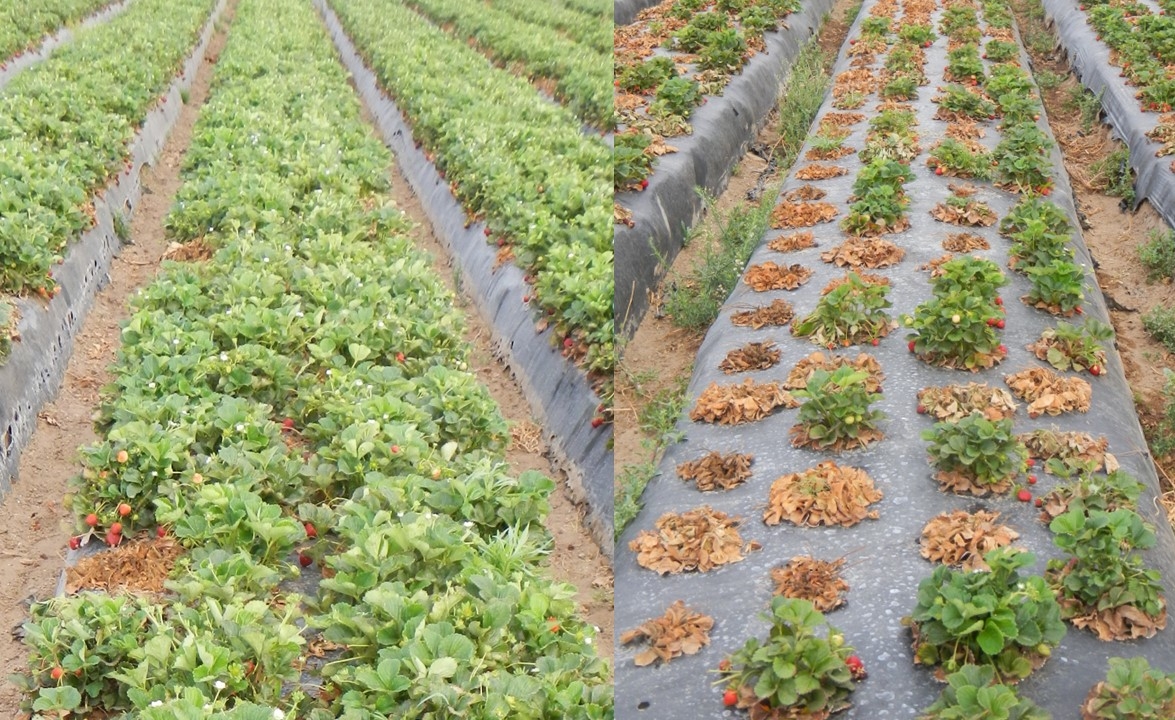 Specialist for UCANR
Specialist for UCANR
and Assistant Adjunct Professor, Joji Muramoto, was featured in an
article from University of California Agriculture and Natural Resources about anaerobic soil disinfestation (ASD) techniques to improve organic strawberry yields. Muramoto was among the first to try the technique in California and is a leader of current research. He directly links the growth of California organic strawberry production with the increasing adoption of ASD, avoiding about 465,000 pounds of fumigant active ingredients that would have been used in growing conventional strawberries.
Assistant Professor Katherine Seto led a team of researchers who published the study, "Characterizing pathways of seafood access in small island developing states" exploring how fishery-dependent households access seafood resources in Kiribati. Using a random forest model & cluster analysis of nationally representative data,
the study, "Characterizing pathways of seafood access in small island developing states" exploring how fishery-dependent households access seafood resources in Kiribati. Using a random forest model & cluster analysis of nationally representative data,
they applied access theory to trace the flows of consumptive benefit in a fisheries-based food system. They found households with the highest seafood consumption have lower market access — highlighting the importance of home production and gifting. This research demonstrates that high consumption occurs under different constraints and contexts, and cannot be assumed based on village or household characteristics alone. Read the newscenter article >>
Professor Stacy Philpott in 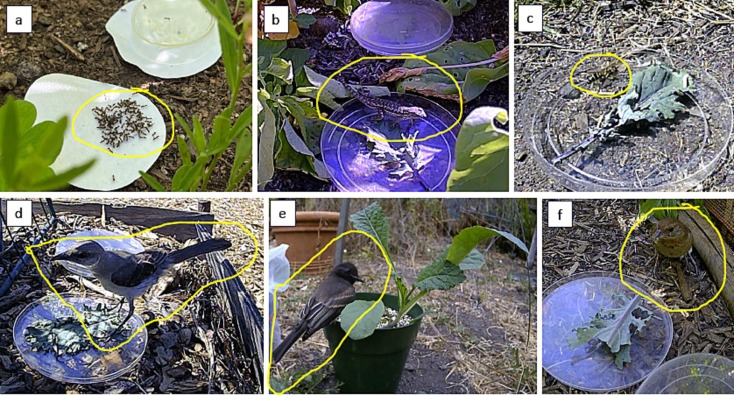 collaboration with specialist Peter Bichier and UCSC alum Robyn Fowler, published a paper in Biological Control examining how landscape and habitat features and microhabitats influence predator abundance and composition and prey removal from urban gardens. They used observations and video cameras to document that ants, spiders, wasps, lizards and birds all provide pest control. Although predator composition was mediated by many habitat features, prey removal was greater under vegetation (compared with bare or mulched areas), with more flowers, and in gardens with fewer trees and shrubs.
collaboration with specialist Peter Bichier and UCSC alum Robyn Fowler, published a paper in Biological Control examining how landscape and habitat features and microhabitats influence predator abundance and composition and prey removal from urban gardens. They used observations and video cameras to document that ants, spiders, wasps, lizards and birds all provide pest control. Although predator composition was mediated by many habitat features, prey removal was greater under vegetation (compared with bare or mulched areas), with more flowers, and in gardens with fewer trees and shrubs.
Additionally, Professor Philpott co-authored a paper in Insects with Ph.D. alum Azucena Lucatero examining how local habitat complexity impacts herbivores and natural enemies in urban gardens. They measured vegetation cover, diversity, and connectivity. They found that gardens with more vegetation cover had the most abundant and diverse predators, while gardens with more diverse vegetation had fewer predators. Gardens with abundant predators had higher pest control, whereas gardens with more predator species had lower pest control, likely due to antagonistic interactions between predator species.
Professor Sikina Jinnah has served for three years as co-chair of the Advisory Committee for Harvard's Stratospheric Controlled Perturbation Experiment (SCoPEx), a highly controversial proposed solar geoengineering experiment. The SCoPEx Advisory Committee was charged with advising the Harvard Vice Provost for Research under what conditions the experiment could proceed. This March, the Committee submitted its final report, which outlines the first comprehensive governance framework for an outdoor solar geoengineering experiment, including a set of guidelines for public engagement.
Associate Professor Madeleine Fairbairn published three articles in collaboration with other faculty, researchers, and Ph.D. alumni:
- In "The incumbent advantage: Corporate power in agri-food tech," Fairbairn and Emily Reisman examine the many ways in which established agribusiness firms are influencing the trajectory of new agri-food tech startup firms. The Silicon Valley agri-food tech sector has rapidly grown over the past decade, attracting large amounts of venture capital funding on its promises to disrupt an unsustainable food industry. Through interviews and participant observation within the industry, however, the findings show existing agri-food firms are a huge formative influence in the lives of startups.
- In "Agriculture against the wall: barriers and opportunities for agroecological transitions in California’s industrial agricultural landscapes," Ph.D. alum Estelí Jimenez-Soto, along with Madeleine Fairbairn, Carol Shennan and Joji Muramoto, examine the obstacles to agroecological transition within the central coast strawberry industry. They found that technology-led agroecological transitions will have difficulty succeeding unless they are embedded in broader efforts to transform the social and political relationships of industrial agriculture.
- In "Between maintenance and transformation," Ph.D. alum Aysha Peterson, Fairbairn and Professor Flora Lu, examine the possibilities for a feminist approach to agricultural extension. Extension has long been critiqued for reproducing knowledge hierarchies, upholding existing power asymmetries, and furthering capitalist intensification. Through a case study of one extensionist working with Latine farmers in the Central Coast, however, this article shows that extension also has potential to be a site of care which works to disrupt structural inequality.
Latin American and Latino Studies
Professor and Chair Catherine Ramírez published the chapter, "The Economic Migrant and the Specter of Permanence in Why Cybraceros?, The Rag Doll Plagues, and Walk on Water," in The Routledge Handbook of CoFuturisms, building on her work with the World Economic Forum Centre for the Fourth Industrial Revolution.
In March 2024, Cat was part of UCSC's delegation at the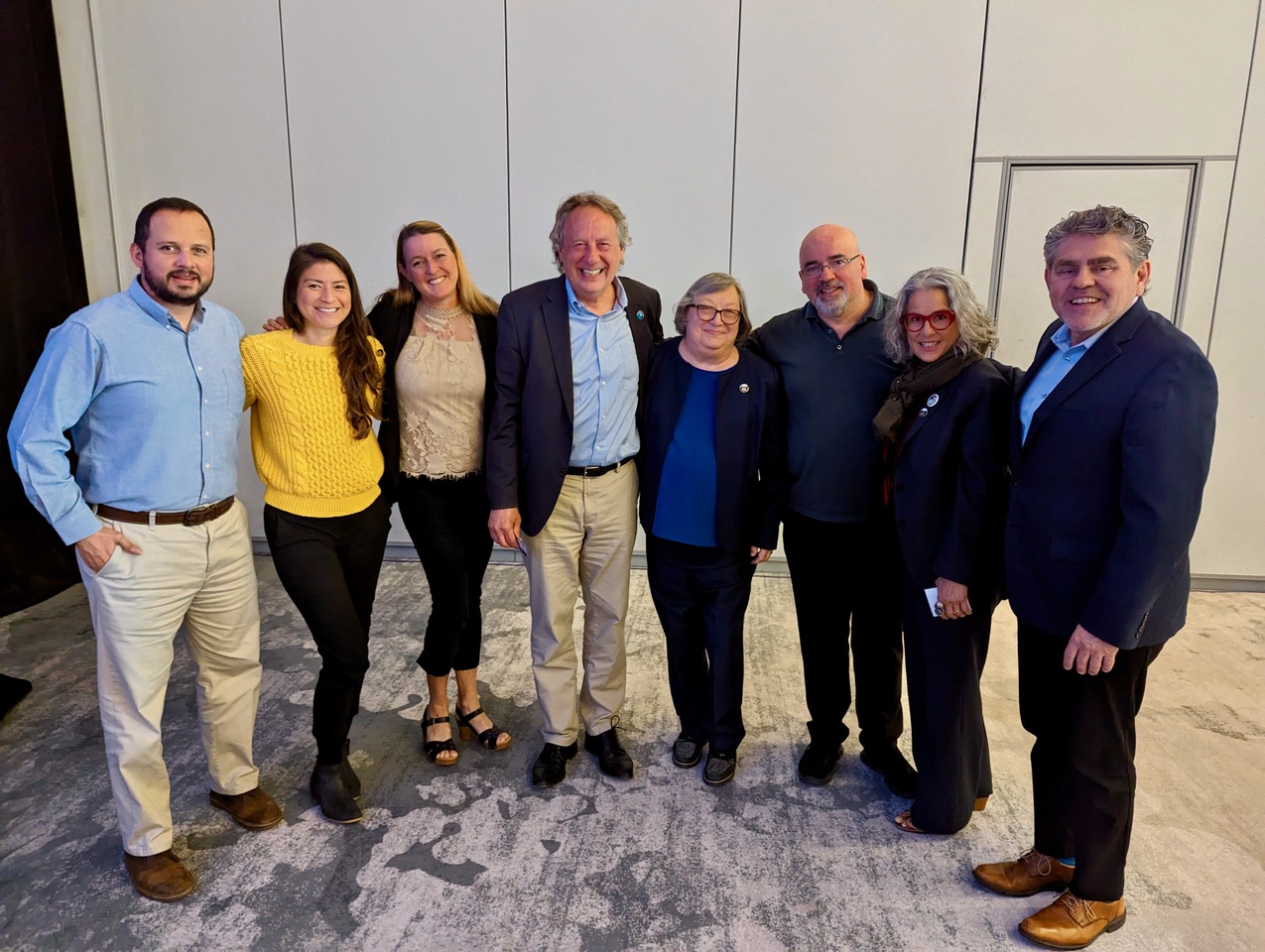 Alliance of Hispanic Serving Research Universities summit, hosted by the University of Texas at Arlington bringing together all 22 Research 1, Hispanic-serving United States institutions. The Alliance is working to increase the number of Hispanic doctoral students enrolled at member universities and to grow the Hispanic professoriate on our campuses by 20%.
Alliance of Hispanic Serving Research Universities summit, hosted by the University of Texas at Arlington bringing together all 22 Research 1, Hispanic-serving United States institutions. The Alliance is working to increase the number of Hispanic doctoral students enrolled at member universities and to grow the Hispanic professoriate on our campuses by 20%.
Additionally, over the next two years, Cat will serve as the principal investigator of Expanding Latinx Studies at and beyond UC Santa Cruz, an Affirming Multivocal Humanities grant from the Andrew W. Mellon Foundation.
Professor Jessica Taft contributed a chapter to the 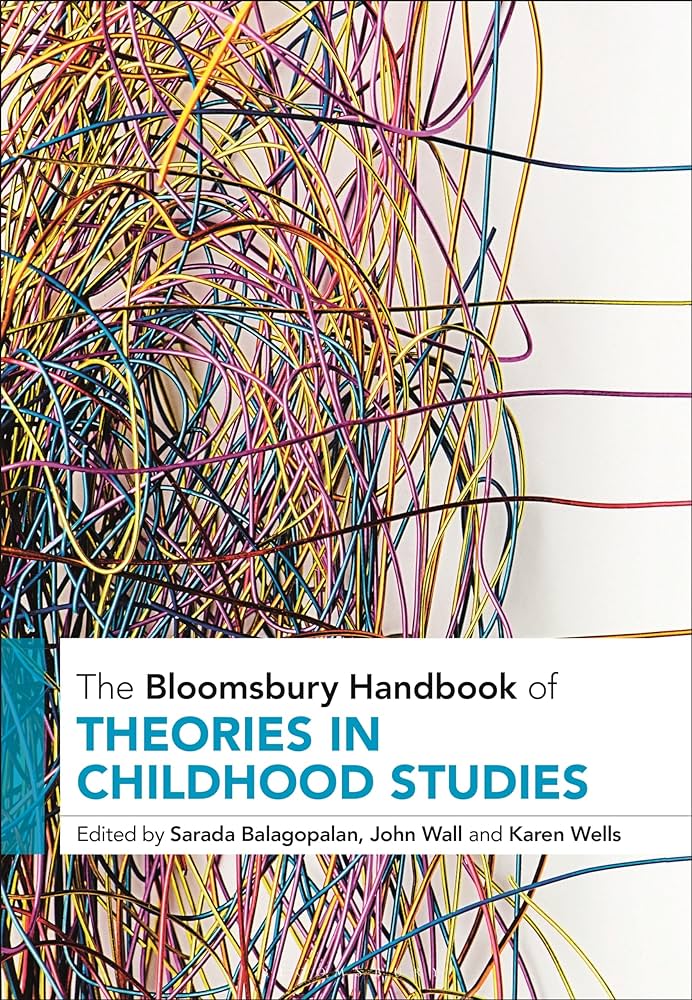 Bloomsbury Handbook of Theories in Childhood Studies.The chapter, "Protagonismo and Power: Building Political Theory with Young Activists," argues that young activists’ strategies and tactics for change illuminate the contours and limits of young people’s collective political power, including their symbolic power, disruptive power, prefigurative power, and relational power. Foregrounding the theoretical work being done by children’s movements, the chapter challenges individualized approaches to children’s participation.
Bloomsbury Handbook of Theories in Childhood Studies.The chapter, "Protagonismo and Power: Building Political Theory with Young Activists," argues that young activists’ strategies and tactics for change illuminate the contours and limits of young people’s collective political power, including their symbolic power, disruptive power, prefigurative power, and relational power. Foregrounding the theoretical work being done by children’s movements, the chapter challenges individualized approaches to children’s participation.
Assistant Professor Justin Perez published the chapter "Las Políticas LGBT Globales 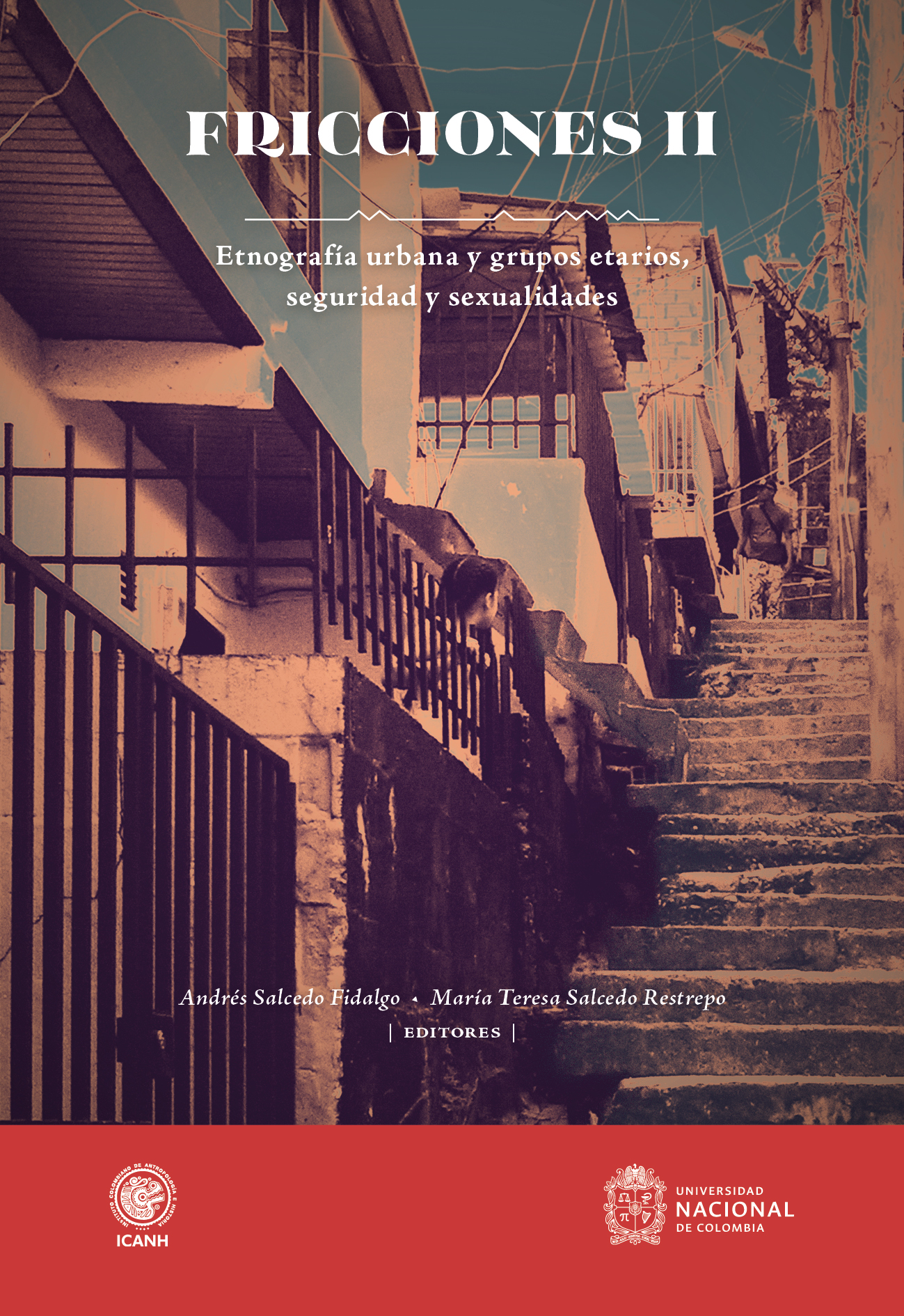 a Escala: Memoria y Derechos a Comienzos del Siglo Veintiuno en Perú" in the edited collection "Fricciones II: Etnografía urbana y grupos etarios, seguridad y sexualidades." The chapter is a Spanish translation of his essay "Global LGBT Politics at Scale: Memory and Rights in Early Twentieth-Century Perú." It explores how LGBT rights advocates in urban Amazonian Peru connected their demands to the broader human rights movement in the country, despite a broader national context with few protections for LGBT communities.
a Escala: Memoria y Derechos a Comienzos del Siglo Veintiuno en Perú" in the edited collection "Fricciones II: Etnografía urbana y grupos etarios, seguridad y sexualidades." The chapter is a Spanish translation of his essay "Global LGBT Politics at Scale: Memory and Rights in Early Twentieth-Century Perú." It explores how LGBT rights advocates in urban Amazonian Peru connected their demands to the broader human rights movement in the country, despite a broader national context with few protections for LGBT communities.
Associate Professor Jeff Erbig received the Southeastern Council of Latin American Studies's (SECOLAS) 2024 Sturgis Leavitt Award for Best Article for "Afterlives in Captivity: Indigeneity and Penal Deportation in Southeastern South America," which was published in Atlantic Studies.
Politics
Professor and Chair Daniel Wirls published the article “Gender-Neutrality Made Easy and Constitutional: Why We Call Members of the House ‘Congressman’ and ‘Congresswoman,’ and Why We Shouldn’t” in the Political Science Quarterly, Winter 2023 edition. It explore how we came to use and accept “congressman”, and later, “congresswoman” instead of “representative” as the common designation for House members, while at the same time referring to senators exclusively by their gender-neutral title. This article traces the history of “congressman” (and “congresswoman”) and argues for dropping the gendered and institutionally inaccurate titles in favor of the one used in the Constitution.
Psychology
Assistant Professor Jason Samaha worked in collaboration Ph.D. student April Pilipenko to publish the article, "Double dissociation of spontaneous alpha-band activity and pupil-linked arousal on additive and multiplicative perceptual gain" in the Journal of Neuroscience, finding that synchronous brain waves in the alpha-band (10 Hz) inhibit visual perception regardless of the strength or presence of a stimulus, leads to false percepts (or hallucinations). Simultaneously, changes in one's pupil size (reflecting changing arousal levels), boosts perception for strong but not weak stimuli, suggesting that high arousal causes more accurate vision (fewer false percepts). Thus, alpha waves and arousal have different effects on perception, but both contribute to variability in our experience of the same stimulus.
Professor Phillip Hammack spoke at the American Psychological Association's "Next Big Ideas" Division 1 Conference, hosted in Tempe, Ariz., from Feb 23-24. Hammack was one of nine invited speakers from a nationwide pool of 80 nominees, and he gave a talk called “Beyond Minoritization: Authenticity, Social Technology, & the New Psychology of Sexual and Gender Diversity.”
